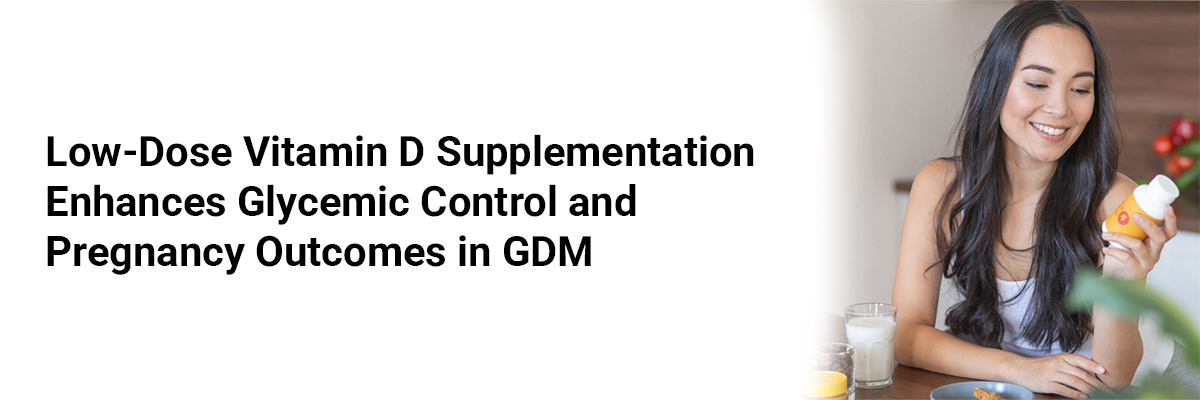
Low-Dose Vitamin D Supplementation Enhances Glycemic Control and Pregnancy Outcomes in GDM
A recent retrospective cohort study published in the Journal of Health, Population and Nutrition has demonstrated that even low-dose vitamin D supplementation (400 IU/day) can significantly improve glycemic control, insulin sensitivity, and pregnancy outcomes in patients with gestational diabetes mellitus (GDM) when combined with dietary therapy.1
GDM, a condition marked by glucose intolerance during pregnancy, poses risks to both mother and fetus, including long-term metabolic diseases. Vitamin D deficiency, common among pregnant women, has been independently associated with insulin resistance and impaired β-cell function. While previous trials focused on high-dose vitamin D interventions, this study assessed whether a daily dose equivalent to prenatal supplementation could still provide therapeutic benefits.
The study included 98 patients with gestational diabetes mellitus (GDM), divided equally into two groups: one receiving vitamin D supplementation and the other serving as a control. Both groups underwent standardized dietary management. After propensity score matching, both cohorts had comparable baseline characteristics, including a severe deficiency in 25(OH)D₃ levels (~10 nmol/L).
Key findings revealed that the vitamin D group achieved glycemic targets significantly faster (mean 3.67 days vs. 4.11 days, HR = 2.30, P < 0.001) and required lower insulin doses. Improvements in key metabolic markers such as HbA1c, fasting and postprandial glucose, and HOMA-IR were notably greater in the vitamin D group. Inflammatory markers, such as hs-CRP and the oxidative stress marker malondialdehyde (MDA), also declined more substantially, suggesting reduced systemic inflammation and oxidative damage.
Furthermore, the incidence of pregnancy complications, such as pregnancy-induced hypertension, preterm birth, and postpartum hemorrhage, was markedly lower in the vitamin D group (22.4% vs. 57.1%, P = 0.003). Adverse neonatal outcomes, including fetal distress and neonatal hypoglycemia, were also significantly reduced.
Vitamin D is believed to enhance insulin signaling through vitamin D receptor (VDR)-mediated pathways, including the activation of PI3K-Akt and the upregulation of insulin receptor substrates. It also improves placental function and reduces systemic inflammation—mechanisms critical to pregnancy outcomes and glucose homeostasis.
This study is among the first to demonstrate that even routine low-dose vitamin D supplementation, when combined with dietary guidance, can have clinically meaningful effects on maternal-fetal health in GDM. These findings support the integration of vitamin D into standard GDM care, although larger randomized trials are needed to establish optimal dosing and long-term effects.













Please login to comment on this article